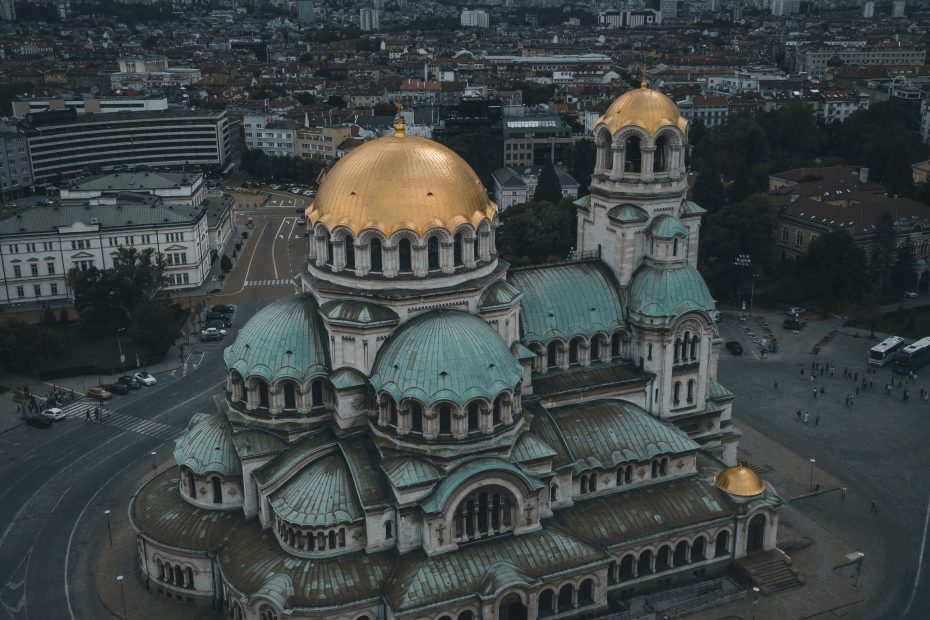Bulgaria has a long and storied past, strategically located at the crossroads of Europe and Asia. Its unique geographic position has resulted in a diverse cultural heritage that has evolved over millennia. Join us on a journey through the ages to discover Bulgaria’s captivating culture.
Table of Contents
Ancient Thrace and the Thracians
The ancient Thracians were the first major civilization to inhabit the lands of modern-day Bulgaria. They built a prosperous culture from 5000 BC to the 4th century AD known for its advances in music, poetry, agriculture, and metalworking. The exotic treasures uncovered from Thracian tombs reveal a society of warriors, artists, and horsemen who left a lasting imprint.
The Roman Empire
In 46 AD, the Romans absorbed Thrace into their sprawling empire. They brought new architectural styles, technology, and Latin language to the region. You can still see Roman amphitheaters, baths, and roads across Bulgaria today. This integration into the Roman world connected the lands of Bulgaria with the wider Mediterranean civilizations.
The Byzantine Empire
When the Roman Empire split in 395 AD, the lands of Thrace became part of the Eastern Roman (Byzantine) Empire. This heralded the spread of Orthodox Christianity among Bulgarians and the creation of the Cyrillic alphabet by Bulgarians Saint Cyril and Saint Methodius. Bulgaria’s long Byzantine era left a lasting religious and cultural legacy.
The First and Second Bulgarian Empires
The First Bulgarian Empire (681–1018) and Second Bulgarian Empire (1185–1396) represented the peak of medieval Bulgarian culture. Arts, commerce, and religious architecture flourished with new cities emerging across the realm. Monasteries like the Rila Monastery were great centers of learning during this golden age.
Ottoman Rule
For nearly 500 years, Bulgaria was part of the Ottoman Empire. This long period under foreign rule saw economic decline but also nurtured a unique folk culture. Traditional music, dances, costumes, and crafts took root across Bulgarian villages during the Ottoman centuries. This folk heritage remains a vital part of Bulgaria’s national identity.
The Bulgarian Revival
The 19th century saw a resurgence of Bulgarian culture and identity. Writers, revolutionaries, and artists led a movement to revive the Bulgarian language and culture, inspiring an uprising against Ottoman domination. Figures like revolutionary Vasil Levski embodied the Bulgarian struggle for self-determination that ultimately led to independence in 1878.
Modern Bulgaria
As a modern nation, Bulgaria has developed a diverse cultural blend. Traditional village life coexists with postmodern art galleries in cities like Sofia and Plovdiv. The communist era and consumer age have also left their mark on the culture. Yet ancient folk customs remain woven into daily life – from music and dance to costumes and mythology.
Famous Bulgarians
From athletes to artists, many Bulgarians have made an impact worldwide. Tennis ace Grigor Dimitrov, opera singer Boris Christoff, and artist Christo are all household names. Pioneering doctors, scientists, and innovators also highlight the achievements of great Bulgarians through the centuries.
UNESCO World Heritage Sites
Bulgaria has nine UNESCO World Heritage Sites including ancient Thracian tombs, the Rila Monastery, and the ancient city of Nessebar. These places of breathtaking beauty and significance help tell the story of Bulgaria’s cultural evolution for visitors and locals alike.
Contemporary Arts and Culture
A new generation is shaping Bulgaria’s current cultural scene. The capital Sofia hosts international film and animation festivals alongside art galleries and vibrant nightlife. Musicians like Poli Genova and the Mystic Dances rock band reach global audiences by blending Bulgarian folk music with modern pop.
Cuisine
Bulgarian cuisine may be the country’s most unifying cultural element. Similar recipes and ingredients connect rural villages and cosmopolitan cities. Moussaka, kebapche, yogurt, and banitsa pastries offer just a small taste of Bulgaria’s savory regional dishes and Turkish, Greek, and Slavic influences.
Conclusion
The cultural heritage of Bulgaria is an intricate mosaic that tells a nuanced story of its place at the crossroads of history. Through occupations, empires, religious shifts, and artistic awakenings, Bulgaria has preserved its language, music, and identity as well as embraced new cultural elements over the centuries. Today this rich folklore lives side by side with modern art and innovation, creating a unique Bulgarian culture that honors the past while looking to the future. The passion, resilience, and creativity of the Bulgarian people promises more fascinating chapters yet to come.
FAQs
What ancient civilization first inhabited Bulgaria?
The ancient Thracians were the earliest major civilization to occupy the lands of modern Bulgaria beginning around 5000 BC. They were known for their advances in areas like metalworking, horsemanship, agriculture, music and poetry.
What alphabet is used in Bulgaria?
Bulgaria uses the Cyrillic alphabet which was created by Saints Cyril and Methodius during the rule of the Byzantine Empire in the 9th century AD. The Cyrillic script was based on Greek letters and helped spread Christianity and literacy among the Slavic people of Eastern Europe.
When did Bulgaria gain independence?
After centuries of Ottoman rule, the Bulgarian Revival movement began nurturing Bulgarian nationalism in the 19th century. Revolutionary uprisings led to the Serb-Bulgarian War and Russo-Turkish War which ultimately resulted in Bulgaria declaring independence in 1878 after almost 500 years of Ottoman control.
What is a key aspect of folk culture in Bulgaria?
Music and dance are vital parts of Bulgarian folk culture that developed during Ottoman rule in rural villages. Distinctive instruments like the gaida (bagpipe), kaval (flute), and tupan (drum) accompany traditional circle dances like the horo. Folk costumes with elaborate embroidery and designs are also commonly worn for celebrations.
How many UNESCO World Heritage Sites does Bulgaria have?
Bulgaria is home to nine UNESCO World Heritage Sites including ancient Thracian tombs, the Rila Monastery, the Rock-Hewn Churches of Ivanovo, and the ancient city of Nesebar along the Black Sea coast. These places showcase Bulgaria’s diverse cultural and architectural heritage for the world.
